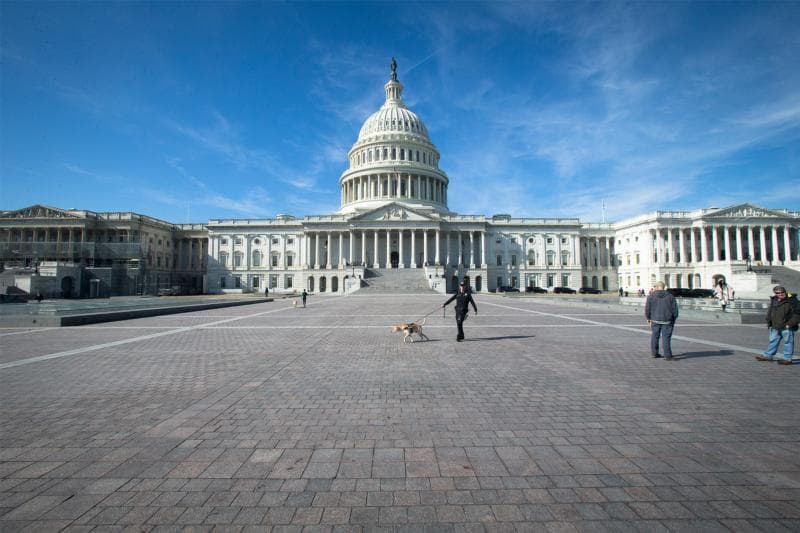In the early nineteenth century, the Catholic Church was seen as an anomaly in vast portions of English-speaking North America. Based in part on historical tension and theological differences from Europe, the Rome-based body seemed a threat to the American way of life. It was questioned whether Roman Catholics could be good Americans.
Such questions provoked suspicion and discrimination against those who believed in a Vicar of Christ on earth and the Real Presence in the Eucharist. Could these Catholics, these papists, be trusted in the relatively new democratic republic of the United States?
In response to such growing uncertainty, a group of representatives reached out to Bishop John England, the founding Bishop of the new Diocese of Charleston. He was an Irish-born bishop of the religious group, who was known for his intellect and conciliatory demeanor. The group asked the bishop if he could explain what Catholicism was and what the American republic could rightly expect from its Catholic citizens.
Bishop England jumped at the chance, and in 1826 he gave his now famous Address to the House of Representatives. In the Address, the forty-year-old bishop gave a summary of principal Catholics beliefs. He applied these beliefs to life and argued that Catholics would make strong neighbors and loyal citizens. He sought to show that Catholics were staunch Americans and could be trusted.
In his Address, Bishop England appealed to shared societal principles and mutual civic virtues. It was a masterpiece that explained what the common good and public benefit were and how a society could be united, even as it was composed of different cultures and creeds.
Regrettably, it would take many decades after Bishop England’s Address before popular American culture would accept Catholicism and see the dedication and contribution of Catholics to the American way of life. Such acceptance was a hard sell that took hard work, selfless service, sacrificial military service, and political achievements to bring to the forefront.
The Address of Bishop John England, and his overall work to shepherd and grow the Catholic Church in English-speaking America and his labors to help the predominant culture of his time to understand and accept the Catholic Church, were recently on my mind. The legacy of such an apostolic mission and its accomplishments are still remembered in the Diocese of Charleston, which is celebrating its 200th anniversary this year.
In particular, however, the opus of John England was on my mind because of a high honor that was extended to me as a priest of the Diocese of Charleston. Through the nomination of my parish’s local congressman, I was invited to offer the Noon invocation for the US House of Representatives this past week. It might sound simple enough to some, but the opportunity to offer public prayer in the People’s House was a blessing I did not take lightly.
While the prayer was limited to 150 words, and had specific non-sectarian boundaries, and had to be submitted for review, it was an opportunity of a lifetime.
While Bishop England would have given his Address in the old House Chamber, which the House of Representatives outgrew, my prayer in the “new” chamber was still in the same Capitol building and was still before the same representative body. I was greatly moved by these facts and by the spiritual connection between a great believer and leader of my church and myself. As a help in writing my prayer, therefore, I read the Bishop’s Address and sought to broadly and lightly highlight his points and emphasize his message.
While the esteemed bishop and I span a difference of almost 200 years, the message and the mission are the same. The task of the Catholic Church remains. The work of the American republic continues. As Catholics, our weight of glory is to seek holiness and selflessly serve others according to our tradition. As Americans, our inheritance it to preserve our principles as a people and to help build up the common good.
Bishop England stressed these points in 1826. In a much smaller way, I was able to pray for these same points in my January 2020 prayer:
Good and Gracious God,
You have ordered all things according to your laws of goodness and righteousness.
You bless all your children with equal dignity
and endow them with talents to pursue happiness.
In your kindness, you inspire and raise up leaders for your people.
We ask you to bless this House of Representatives,
made up of these leaders,
and to bless their work during today’s session.
Grant them prudence and fortitude.
May they seek your divine wisdom and give you due homage
in all their deliberations and decisions.
May they always seek the common good,
the public benefit,
and true justice and peace for all.
We ask all these blessings from you,
Who are the Lord God and the Giver of Life,
Forever and ever.
Amen.
Crux is dedicated to smart, wired and independent reporting on the Vatican and worldwide Catholic Church. That kind of reporting doesn’t come cheap, and we need your support. You can help Crux by giving a small amount monthly, or with a onetime gift. Please remember, Crux is a for-profit organization, so contributions are not tax-deductible.















